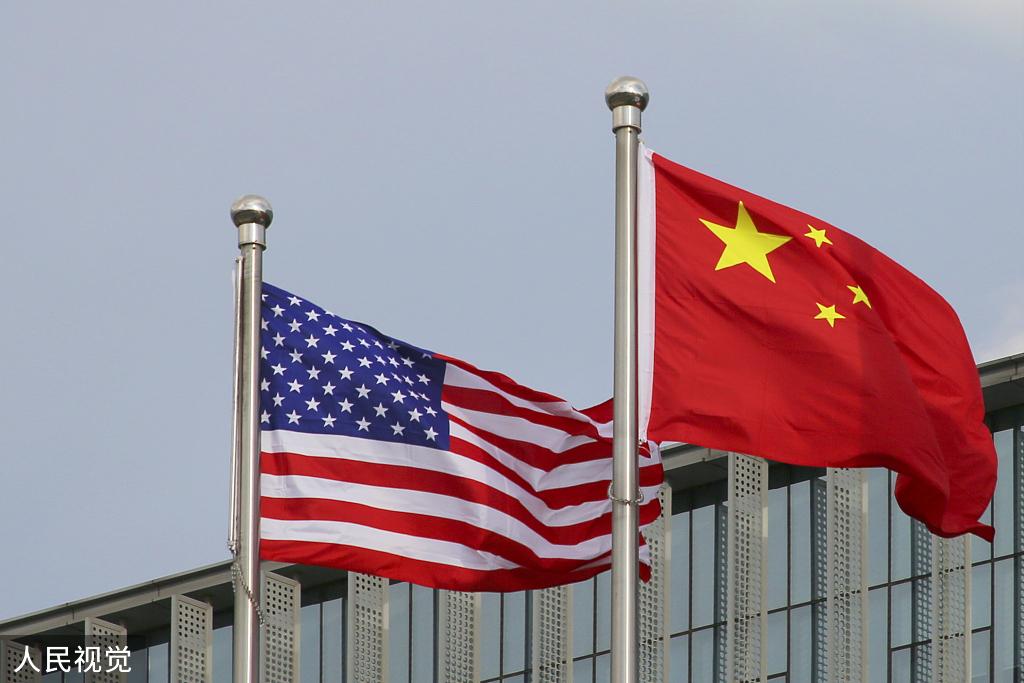
 0 Comment(s)
0 Comment(s) Print
Print E-mail China.org.cn, May 6, 2024
E-mail China.org.cn, May 6, 2024

[Photo/VCG]
U.S.-China relations are at an inflection point. Pressing global issues like climate change, a faltering global economy, conflicts and technological disruption demand a cooperative, consensus-driven approach to avert potential disaster.
Washington recognizes this on one level, constantly turning to Beijing to help solve global challenges. Yet recent visits to China by Secretary of State Antony Blinken, Commerce Secretary Gina Raimondo and Treasury Secretary Janet Yellen show the U.S. remains unwilling to compromise its faith in American exceptionalism – the belief that global peace and prosperity hinges on the imposition of American-style political and economic governance in all countries, even at gunpoint if necessary.
Lacking a new strategy, America's political elite have reverted to their 1970s playbook against Japan. This includes constant, unsupported claims of unfair competition driven by internal overcapacity due to subsidies.
If you have any doubts, look at old pictures of politicians, local and national, wielding sledgehammers and bats to destroy Japanese electronics and cars.
China's electric vehicle (EV) market started developing 12 years ago. By 2018, over 150 companies populated the EV market. Today, only a handful remain viable due to domestic competition spurred by innovation, costs and consumer demands. The reality is that Chinese EV makers have surpassed their international rivals, but like with Japan's auto ascendance decades ago, Washington's answer isn't to compete, but to intimidate and cry foul over U.S. companies' failures.
Blinken's visit to China aired a litany of accusations, including "market distortions," against the backdrop of a faltering U.S. economy that just reported a lackluster 1.6% first-quarter GDP growth.
Yet, as Bloomberg Businessweek reports, the real issue is not only America's failure to compete, but the effects it is having on its domestic economy:
"A laid-off YouTube employee is down to his last paycheck. A former startup worker has to borrow money from his family to pay his mortgage. A veteran financial consultant can barely land an interview. They're all victims of stalled white-collar hiring across much of the U.S. industries such as finance, technology and media, and professional services like law and accounting, have turned into a pocket of weakness in an otherwise-robust labor market."
Statistics across major metro areas reflect decreasing high-income service jobs, especially tech roles, while subsidized U.S. chip plants face delays due to a lack of skilled engineers. So, while openings for low-paying service jobs remain high, corporate America slashes payrolls as personal debt and loan defaults continue to surge. Inevitably, this is going to hurt consumption, the largest part of the U.S. economy.
A sharp depression in U.S. demand would hit commodity and manufacturing globally, triggering a global depression. Instead of trying to work together with China for a global solution, the U.S. strategy centers around denial and "flipping the script," accusing China of distorting the market, as it distorts its own, by offering massive subsidies to chip makers and the domestic automobile industry.
Accusing others of your own actions is a short-term PR tactic, but it seems Washington's only move these days. Washington's faith in American exceptionalism precludes cooperation, favoring hegemonic domination over partnerships. This stance is what holds back the possibility of substantive U.S.-China cooperation.
The author is a senior fellow at the Beijing-based Taihe Institute.
Opinion articles reflect the views of their authors, not necessarily those of China.org.cn.